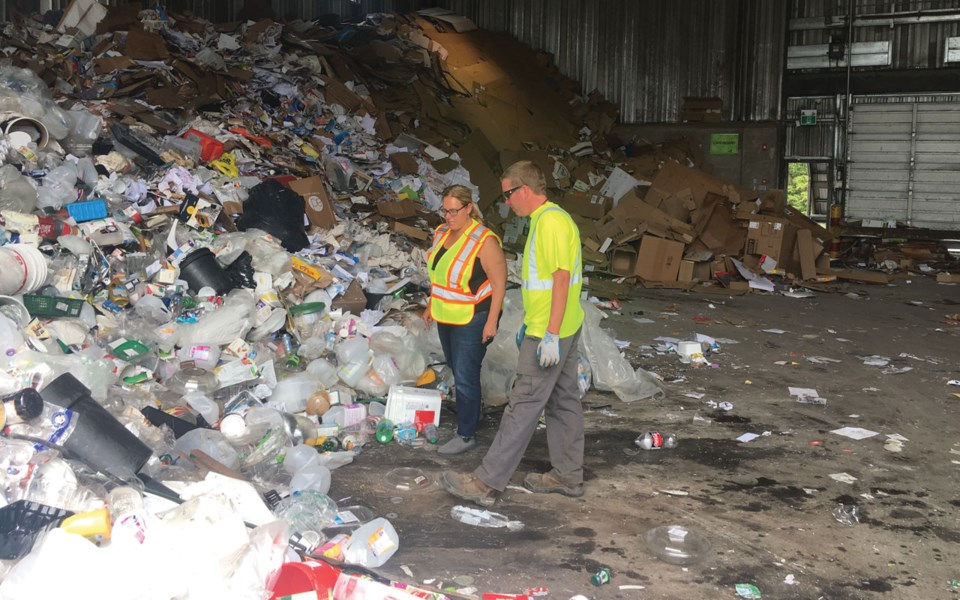For the first time in 15 years, Whistler won’t send its waste to a landfill in Washington state after council awarded a five-year disposal contract to a B.C. company.
“I have a bit of a moral problem sending our garbage over a border to another country,” said Councillor John Grills. “There could be issues down the road with policy changes either by the state or the federal government, which could present problems to us. It’s gone well for several years but that’s something we’re not in control of.”
Since the Resort Municipality of Whistler (RMOW) closed the municipal landfill in 2005, the community’s solid waste has been shipped to a landfill in Roosevelt, Wash. With that contract set to expire on Nov. 1, the RMOW put out a request for proposals this summer, ultimately getting back three proposals.
After the initial scoring process—which was based on a number of environmental and financial criteria—two of the proposals, from Belkorp Environmental, which maintains a closed landfill as well as a new landfill in the Cache Creek area, and Republic Services, the RMOW’s previous waste contractor, which operates the Washington landfill, had very similar scores. That prompted an invite to each proponent to be interviewed so they could further state their case to staff and clarify the finer points of their proposals.
In the end, Belkorp narrowly beat out Republic Services for the contract, with municipal staff appreciating the flexibility and cost of the company’s proposal.
“Through that [interview] process, we got a high level of comfort,” said James Hallisey, the RMOW’s manager of environmental projects. “Not only is Belkorp the lowest price point, but they had good answers to our questions.”
A key selling point to Belkorp’s proposal was the use of what’s called a B-train-configured transport truck and trailer system that will enable the RMOW to ship higher volumes of waste per load than their existing contract, which involved sending waste by both truck and rail.
Republic Services, which relies on receiving waste at a designated collection point (DCP) in Burnaby before moving on to Washington, can ship up to 35 tonnes per load, while Belkorp is predicting to carry up to 40 tonnes per load.
Belkorp has also committed to modifying its B-trains to allow for three additional tonnes to be transported per load—although that won’t be in place until the third year of the contract.
“The idea behind that would be to load more waste into each truck then send fewer trucks down the road to the landfill each year,” explained Andrew Tucker, municipal manager of transportation and waste management.
“That provides a little more flexibility to the municipality.”
B-train trucks do produce more GHG emissions per trip compared to rail, however, with a back-haul program from the landfill back to Belkorp’s DCP in Coquitlam, the estimated emission output between the two proposals were similar.
“That, in combination with reducing the number of trucks leaving the transfer station because of the larger capacity of these trucks, we calculated that GHG emissions were similar in nature,” Tucker said.
With the back-haul program in place, Belkorp’s estimated emissions would drop from 461,733 kilograms of carbon dioxide equivalent per year to 396,802 kg.
The B-trains would also require modifications to Whistler’s waste transfer station in order to accommodate the larger trucks, which is expected to be completed in the coming weeks.
Belkorp’s Campbell Hill landfill does not currently have a gas collection system in place, as the new site has to hit a provincially mandated threshold of 10,000 tonnes of waste before the system can be installed, likely as early as next year. Until then, the company will blanket the waste with a bio-cover.
If the RMOW is satisfied with Belkorp’s performance over the five years of the contract, it can negotiate another five-year contract extension.




